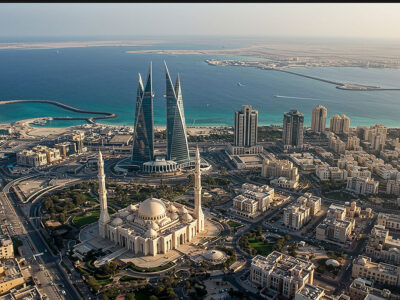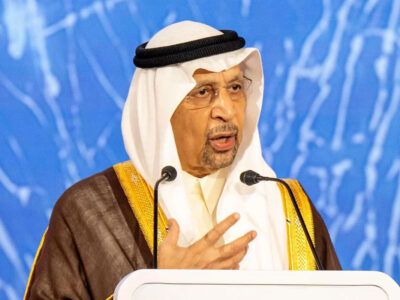Bahrain has asked Gulf Arab allies for financial assistance as it seeks to replenish its foreign-exchange reserves and avert a currency devaluation that could reverberate across the region, according to people with knowledge of the talks.
The request was made to Saudi Arabia and the United Arab Emirates, two of the people said. A third person said Kuwait was also asked. The countries responded by requesting the island kingdom do more to bring its finances under control in return for the money, the people said on condition of anonymity because the discussions were private. The talks are at an early stage, one person said.
Bahrain, a close Saudi ally, has been more vulnerable to slumping oil prices and regional political instability than richer Gulf Cooperation Council states. Several GCC nations have cut spending and curtailed handouts to their citizens, and while Bahrain’s budget deficit is set to narrow this year, the International Monetary Fund expects the shortfall to be the highest in the GCC.
The central bank’s foreign reserves, including gold, have tumbled about 75 percent since 2014 to just above 522 million dinars ($1.39 billion) in August, according to the most recent official data. Without aid or a recovery in oil revenue, authorities may struggle to keep the currency’s peg to the US dollar – maintained at 0.376 Bahraini dinars.
Expectations among investors and credit-rating companies that rich Gulf states would prevent Bahrain’s difficulties from morphing into a full-blown financial crisis have allowed the kingdom to tap international bond markets as recently as September, when it raised $3 billion. Bahrain’s debt risk, measured by five-year credit default swaps, has dropped more than 60 basis points to 241 as of Tuesday, according to data compiled by Bloomberg.
But a bond prospectus in September included a warning from authorities that falling reserves carried the risk of a currency depreciation. The central bank, being a “significant” lender to the government, may not be able to maintain the peg, according to the document seen by Bloomberg News. Bahrain didn’t cite that risk in its prospectus in 2013.
Officials in Bahrain, the UAE and Kuwait didn’t immediately respond to requests for comment on the aid talks. Saudi officials couldn’t immediately be reached.
The IMF estimates that Bahrain needs oil prices at $99 a barrel to balance its budget this year, compared with $73.1 a barrel for Saudi Arabia, which is overhauling its economy. While Brent crude is trading at the highest level in more than two years, it’s still almost $40 below Bahrain’s breakeven price.
Economists say that a Saudi-led bailout of Bahrain will be less costly than cleaning up the mess of a devaluation. Protecting Bahrain’s peg remains a priority among GCC members to avoid contagion risk, according to BofA Merrill Lynch’s Jean-Michel Saliba. The GCC is likely to “nudge Bahrain towards greater fiscal reforms,” the London-based economist wrote in a note in May after an eight-day trip to the region.








